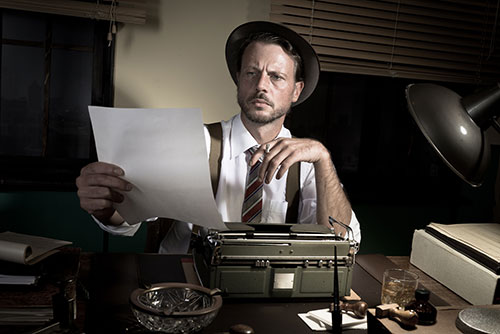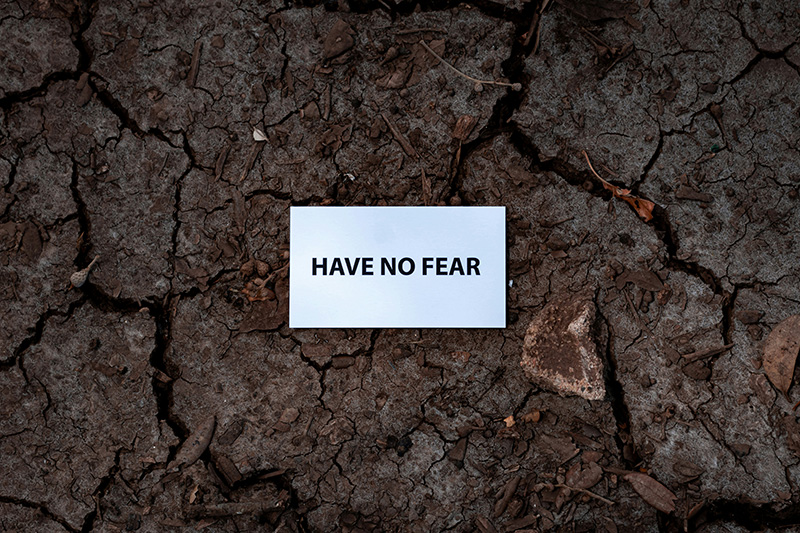Last Updated on February 15, 2022
 You've heard it ad nauseum: Write what you know. In the age of instant expertise that gives us plenty of latitude—simply watch a few YouTube tutorials and you too can know how to caulk your tub, apply false lashes without gluing your lids shut, and distinguish poisonous forest fungi from the edible types (pay close attention to that one).
You've heard it ad nauseum: Write what you know. In the age of instant expertise that gives us plenty of latitude—simply watch a few YouTube tutorials and you too can know how to caulk your tub, apply false lashes without gluing your lids shut, and distinguish poisonous forest fungi from the edible types (pay close attention to that one).
Then there's email, allowing us to solicit particulars on any subject from any expert with a keyboard. Even better, the responses can be copied and pasted directly into our writing project. That said, if the correspondent isn't a loquacious raconteur offering up a stream of rabbit-hole asides, we're not going to get any of the telling information or insights that linger along the edges of a conversation, that come from a follow-up question or a random observation.
If you're simply looking for verification of facts, these quasi-anonymous e-forms of intelligence gathering are efficient time-savers. But they're unlikely to illuminate an article or book with the unexpected discoveries that old-fashioned face-to-face interviews provide.
When it comes to getting to know what you don't know, when you don't even know you don't know it, there's no substitute for sitting down with a living soul who's imbued with that knowledge. Along with what they intentionally share, the interviewee is likely to present all manner of rich and unanticipated details while you're chatting in person. Any one (or all) of these gems may wind up being germane, even crucial, to your topic.
Let's say your subject is the evolution of the basset hound. Upon visiting a Westminster judge for the Hound Class, you find him with a posse of petit bassets griffon vendéen circling his feet. You ask a few questions about these bearded shorties, he extols their singular importance in the development of scent hounds as we know them today, and you—epiphany!—realize that the PBGV is an altogether better topic for your project than bassets as a whole.
Had you resorted to a phoner with the judge, the PBGVs would still be in the what-you-don't-know-you-don't-know basket, perhaps never to be discovered.
It's logical. When catching up with a friend over coffee or a cocktail, isn't the conversation exponentially more illuminating than a back-and-forth over email? Beyond the exchange of words, you're able to observe your friend, see how she looks, if her body language is enhancing or betraying what she's saying, if her mouse-brown hair is now puce or her usually manicured nails bitten to the quick. That's information, and in an interview situation it's critical.
When writing a profile or drawing a character sketch, no detail is too small, and the smallest are often the most revealing. The relaxed or darting eyes, the quick pace or shuffling feet, the cadence of speech, the books on the shelves, bottles on the bar, choice of outfit—all are invaluable for creating or describing a believable character, whether real or fictional. If a producer answers his door in a camel overcoat and black fedora on an 80-degree day in LA, white powder announcing his nostrils, that tells you something he's unlikely to offer. When a celebrity bounces his leg up and down like a jackhammer as you try to untangle the trunk-size recorder your editor required you to use (hello, Readers Digest), you know that he's irritable—maybe not just with you. The art collection and overall decor in a home are tells, the things that give shading and depth to your description of a person or setting. You won't find any of them in an iChat discussion or phone call. Besides, in our era of phone and computer hacks, if there's any sensitive issue under discussion, that tête-à-tête on a park bench or in a discreet study may be the ideal option for security reasons alone.
The best writing engages all the senses, transporting readers beyond the type marching along a page. Creating these worlds requires being a detective, finding the clues that don't announce themselves. Convenience is not a writer's best friend. Know that. Set up interviews with your subjects and experts, dress appropriately, grab your GPS, and get out of your environment and into theirs.
- In Praise of Procrastination - December 5, 2019
- TMI Is Not Your Friend - August 13, 2018
- Get Dressed: A Case for the In-Person Interview - March 14, 2017



